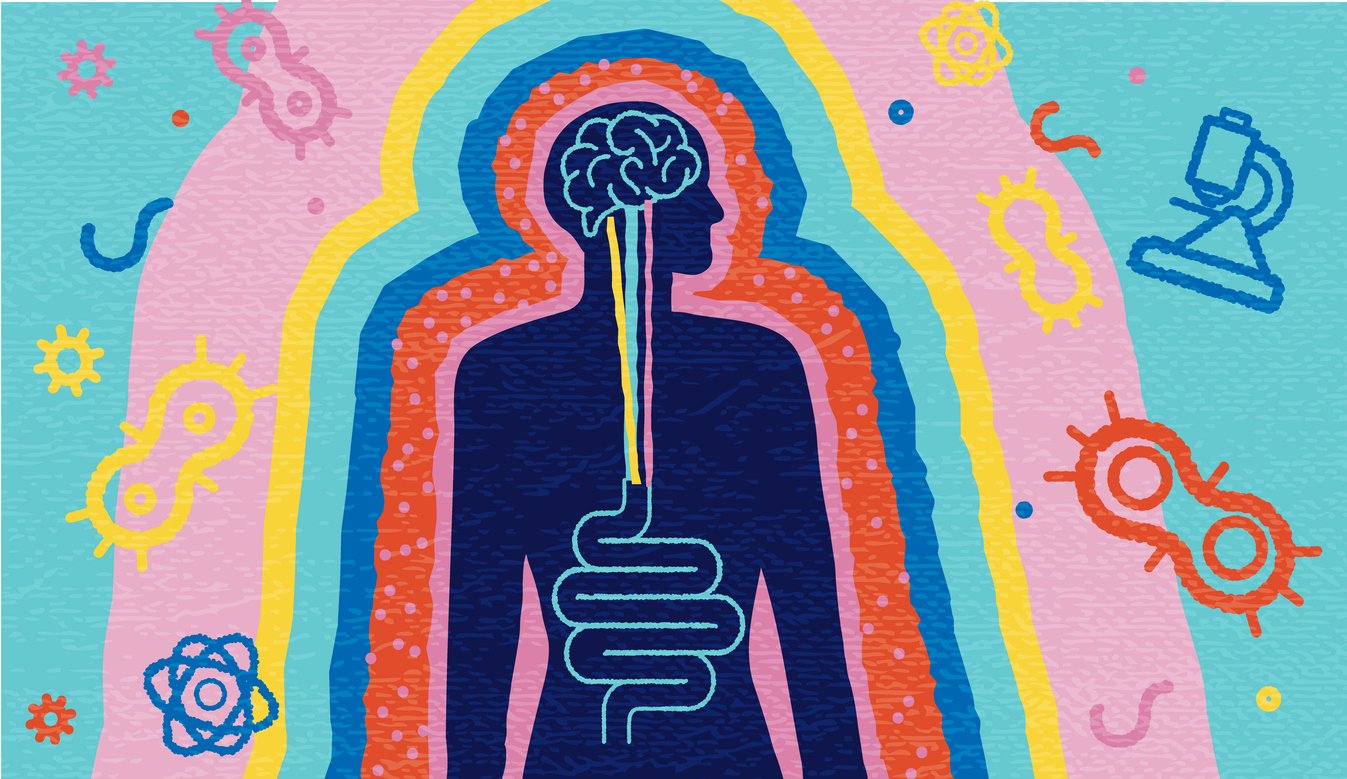
Alleviant Integrated Mental Health Blog
Welcome to June: Brain First. Whole Person. Always.
Modern psychiatry is undergoing a long-overdue transformation.
For decades, mental health care has functioned like a guessing game. Clinicians identify symptoms, apply a label, and prescribe a medication—often without any way to see what’s actually happening inside the brain. And when that treatment doesn’t work, the solution is usually to try a different medication… or add more.
This trial-and-error model may be common, but it’s deeply flawed. When the brain is the most complex organ in the human body, guesswork isn’t enough. Not for our patients. Not for our mission.
At Alleviant, we’re rewriting that narrative.
We believe healing starts with the brain—and includes every part of the person.
The Gut-Brain Connection: How Your Digestive Health Affects Your Mental Health
We often think of mental health as something that starts and ends in the brain. But more and more research is revealing what we at Alleviant have known for years: the gut and brain are deeply connected — and when your gut isn’t healthy, your mental well-being can suffer.
This relationship is more than just “a gut feeling.” It’s a two-way communication system that affects your mood, focus, energy, sleep, and even your response to stress.
Understanding and healing this connection can unlock powerful improvements in mental wellness — without relying solely on medication.
How Nutrition and Deficiencies Impact Brain Function
Your brain can’t thrive on empty.
Every organ in your body requires fuel — and your brain is no exception. In fact, your brain uses more energy than any other part of your body. When it doesn’t get the nutrients it needs, it doesn’t just slow down — it begins to misfire.
Many symptoms that are diagnosed as depression, anxiety, or even ADHD may actually stem from nutritional imbalances, deficiencies, or toxicities (Rao et al., 2008). But these often go overlooked in traditional psychiatry.
At Alleviant, we ask different questions — because we know that brain function and nutrition are deeply connected.
How Objective Psychiatry Is Transforming Mental Healthcare
Finally — mental health care that sees your brain, not just your symptoms.
If you’ve ever felt like traditional psychiatry wasn’t enough… you’re not alone.
Many people walk into their first appointment, share their story, and walk out with a prescription — often with no real understanding of what’s happening inside their brain or how to know if they’re getting better. That’s not healthcare. That’s guessing.
At Alleviant, we believe you deserve more than symptom checklists and trial-and-error treatment. You deserve clarity, precision, and a care plan based on what’s actually happening in your brain.
That’s the heart of Objective Psychiatry — and it’s changing everything.
Recognizing the Hidden Signs of Mental Health Struggles
Not every mental health battle looks the same. Some people cry, some go quiet. Some isolate, while others keep smiling through the pain. You may not even realize you’re struggling — until the weight of “holding it all together” becomes too much to bear.
During Mental Health Awareness Month, we want to shine a light on the people who don’t fit the typical image of depression or anxiety — those who appear “fine” on the outside, but inside are running on empty.
Maybe that’s someone you love. Maybe it’s you.
Geriatric Mental Health: Addressing Depression, Anxiety, Loneliness, and Cognitive Decline in Older Adults
Aging is a natural part of life—but the mental health challenges that often accompany aging are not inevitable. Depression, anxiety, loneliness, dementia, and cognitive decline are common struggles among older adults, yet they are frequently overlooked or misdiagnosed.
At Alleviant Integrated Mental Health, we recognize that the brain and body change with age, and mental health care must adapt accordingly. Through Objective Psychiatry, spectral EEG (sEEG) brain mapping, personalized NeuroSync™ plans, and integrative care models, we offer hope, healing, and renewed vitality to seniors facing these challenges.
Understanding ADHD: A Brain-Based Perspective on Diagnosis, Treatment, and Hope for Healing
Attention-Deficit/Hyperactivity Disorder (ADHD) is one of the most commonly diagnosed neurodevelopmental disorders in children—and increasingly recognized in adults. It affects not just attention and focus but emotional regulation, executive function, and overall quality of life. At Alleviant Integrated Mental Health, we approach ADHD differently—through a brain-first model that seeks to uncover the root causes rather than simply managing symptoms.
This blog explores ADHD’s underlying mechanisms, the impact of lifestyle and environment, common treatments, and how Objective Psychiatry (including spectral EEG or sEEG) offers a revolutionary path forward.
Meditation and Mental Health: A Natural Upgrade for Your Brain
Meditation isn’t about emptying your mind—it’s about training it.
At Alleviant, we see meditation not as a passing trend, but as a clinically validated method to calm the nervous system, regulate emotions, and restructure the brain itself.
TMS Therapy Explained — How Magnetic Pulses Help Heal the Brain
If you or someone you love is struggling with depression or OCD — and medication hasn’t worked — you may feel like you’re running out of options.
You’re not.
There’s a non-invasive, FDA-cleared treatment that’s helping thousands of people experience lasting relief — without medication side effects.
It’s called TMS — Transcranial Magnetic Stimulation — and at Alleviant, we take it one step further with our personalized version called NeuroSync™.
Let’s break down how it works — and why it may be the right next step for you.
Why ADHD Is Often Misdiagnosed — and What You Can Do About It
Struggling to focus? Feeling disorganized, restless, or distracted? You might assume it’s ADHD. But those same symptoms are also caused by anxiety or trauma, poor sleep, nutritional deficiencies, technology overuse, or inflammatory foods. That’s why, at Alleviant, we never rush to label someone with ADHD. Instead, we use spectral EEG (sEEG) to look at the brain’s real-time activity and determine what’s actually going on — whether it’s ADHD or something else entirely.
What Depression Feels Like — And What You Can Do About It
Depression is often misunderstood.
It’s not just sadness. It’s not just “feeling down.” And it’s definitely not something you can snap out of with a positive attitude or a weekend getaway.
For many people, depression feels like a fog that never lifts — or a weight that makes everything harder than it should be. It’s waking up tired, feeling disconnected from yourself and others, and wondering if things will ever change.
If this sounds familiar, you’re not alone — and you don’t have to stay stuck.
Overstimulated: How Screens and Sugar Hijack the ADHD Brain
If your child (or you) are struggling with focus, impulsivity, irritability, or poor emotional regulation — ADHD may be the first thing that comes to mind. But in today’s world, these symptoms are just as likely to be the result of an overstimulated brain.












